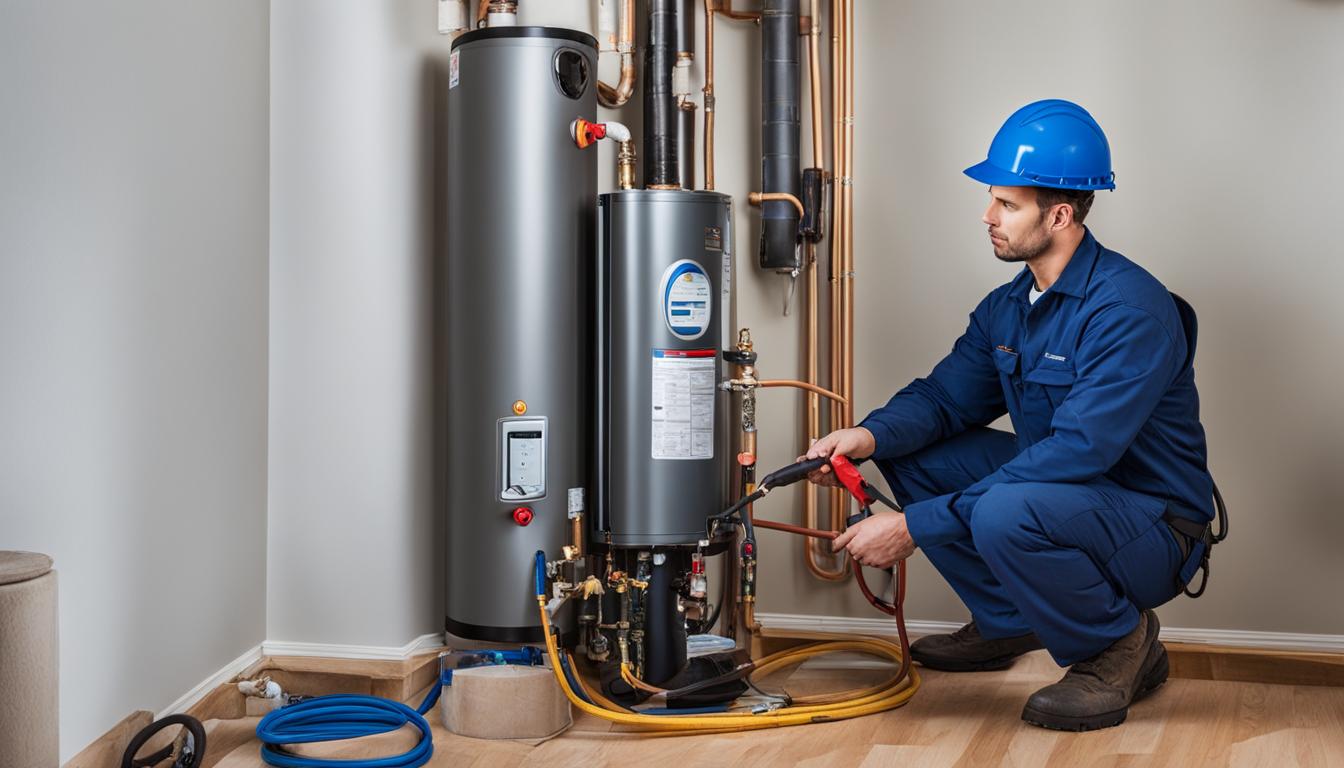When you turn on the tap for a hot shower or to wash your dishes, the last thing you want is lukewarm water or a sudden cold shock. Your water heater is an important part of your home, providing comfort and convenience every day. However, like any appliance, it doesn’t last forever. Knowing when it’s time for a water heater replacement can save you from frustration and unnecessary repair costs. Waiting too long can lead to major issues that could affect your comfort and even your home. Let’s explore the signs that indicate it’s time to replace your water heater before it completely gives out.
1. Age Matters: Is Your Water Heater Over 10 Years Old?
Water heaters typically last between 8 and 12 years, depending on the brand, model, and maintenance. If your heater is approaching or exceeding the 10-year mark, it’s a good idea to start paying closer attention to its performance. Even if it’s working fine, an aging water heater is more prone to issues like leaks, inefficiency, and internal corrosion. At this point, replacing it can be a smarter and more cost-effective solution than continuing with repairs. Don’t wait for it to fail completely—planning a water heater replacement early can prevent sudden breakdowns.
2. Inconsistent Water Temperature: Hot Water, Where Are You?
Have you noticed that your hot water isn’t as hot as it used to be? Or perhaps it takes much longer to heat up? This could indicate a failing heating element or sediment buildup in the tank. A water heater that struggles to maintain a consistent temperature can lead to cold showers or frustrating delays when you’re trying to do something as simple as wash your hands. If your water heater is no longer providing consistent heat, it may be time to replace it with a more reliable model.
3. Strange Noises Coming from the Tank?
Most water heaters make some noise as they operate, but loud popping, cracking, or rumbling sounds are a sign that something’s wrong. These noises often occur due to sediment buildup at the bottom of the tank, which can happen over time, especially in areas with hard water. The sediment causes the heating elements to overheat, leading to reduced efficiency and potential damage. If you’re hearing strange sounds and the water temperature is inconsistent, it may be time to start thinking about water heater replacement. Ignoring the issue can lead to more serious damage to the tank.
4. Leaks Around the Water Heater
Finding water pooling around your water heater is a major red flag. Leaks are often a result of rust and corrosion inside the tank, which can happen as the tank ages. While some minor leaks might be repairable, a tank that is rusting through is beyond saving. If you notice any signs of leakage or moisture around the heater, don’t wait—this is a clear sign that the tank is deteriorating, and a water heater replacement is necessary to avoid further water damage to your home.
5. Higher Energy Bills: Is Your Heater Working Too Hard?
If you’ve noticed a sudden spike in your energy bills without any obvious explanation, your water heater might be the culprit. As water heaters age, they become less efficient at heating water, meaning they have to work harder and use more energy to do the same job. If you’re paying more for hot water than you used to, it could be time for a replacement. Newer models are designed with energy efficiency in mind, which could help you save on your monthly utility costs.
6. Rusty or Cloudy Water
Water that comes out of your faucet looking rusty or cloudy can indicate a problem with your water heater. Rusty water is often caused by corrosion inside the tank, which can contaminate your water supply. Cloudy water, on the other hand, may be a sign of sediment buildup. In either case, the presence of discolored or cloudy water is a clear indication that the inside of your water heater is deteriorating, and replacement may be necessary to restore your water quality.
7. Water Heater Leaking from the Bottom
A leak from the bottom of your water heater could indicate that the tank is cracked or damaged. This kind of leak is a serious issue that often signals a major problem. If water is leaking from the bottom of the tank, the water heater may be at the end of its lifespan. Don’t wait for the situation to worsen; replacing the unit is the safest option to prevent further water damage in your home.
8. Excessive Repairs: You’re Calling the Plumber Too Often
If you find yourself calling the plumber regularly for repairs or maintenance, it might be time to start thinking about replacing your water heater. Continuous repairs can add up quickly, and over time, the cost of fixing a failing unit may exceed the cost of installing a new one. At a certain point, replacing the heater is the smarter financial choice. Newer models are more reliable and often come with warranties, offering better value in the long run.
9. Frequent Tripping of the Circuit Breaker
If your water heater is electric and the circuit breaker is tripping frequently, it could be a sign of a malfunctioning element or thermostat. While this issue can sometimes be repaired, frequent breaker trips often signal an underlying problem that could require a full replacement. A malfunctioning water heater can be a safety hazard, so if you’re dealing with constant breaker issues, it’s time to call a professional for advice and potential replacement options.
10. Cold Showers Are Becoming a Common Occurrence
Perhaps the most obvious sign that your water heater needs replacing is a sudden and persistent lack of hot water. If you’re finding that you’re constantly running out of hot water or unable to get it at all, it’s time to consider your options. Whether the heater is undersized for your home’s needs or it’s simply failing, frequent cold showers are a clear signal that a replacement is in order. A new unit can help ensure you have access to reliable hot water whenever you need it.
11. Increased Sediment Buildup
Over time, minerals in the water can accumulate inside the water heater tank. This sediment buildup can interfere with the heater’s ability to function properly, leading to inefficient heating and potential damage to the tank. While some sediment buildup is normal, excessive buildup can cause the heater to overheat or break down entirely. If your water heater is constantly requiring flushes to remove sediment, it might be a sign that the unit is on its way out and a replacement would be the best long-term solution.
12. Frequent Temperature Fluctuations
If your water temperature is constantly fluctuating, with sudden cold or scalding hot surges, the thermostat or heating element in your water heater might be failing. A faulty thermostat can cause the unit to cycle on and off incorrectly, leading to inconsistent water temperatures. If these fluctuations happen regularly, it’s time to replace the unit rather than continue dealing with the hassle.
Conclusion: Don’t Wait for a Water Heater Disaster
A malfunctioning water heater can disrupt your daily routine and cause damage to your home. By recognizing the signs that it’s time for a water heater replacement, you can avoid waiting until it’s too late. Don’t let your water heater fail without warning—keep an eye out for issues like inconsistent temperature, strange noises, and leaks. If you notice any of these signs, it may be time to consider replacing your old unit with a more efficient and reliable model.
For professional help with water heater replacement, turn to experts you can trust. Go Green Heating & Cooling offers top-notch heating and cooling solutions to meet your needs. Contact us today and let us guide you through the process of selecting the perfect water heater for your home.


Related Stories
The Cost Breakdown of Installing a Mini Split AC System
Mini split air conditioning systems are changing the way homeowners think about cooling. Whether you
May
Why Regular Chimney Cleaning Could Save Your Home—and Your Wallet
Nothing says comfort like a warm fire on a chilly night—but what’s going on inside
May
Should Ductwork Be Replaced After 20 Years?
When your HVAC system works hard to keep you comfortable, your air ducts play a
May
Why Dryer Vent Cleaning is Essential for Fire Prevention
Dryer vent cleaning isn’t just about keeping your appliance running better—it’s one of the simplest
May